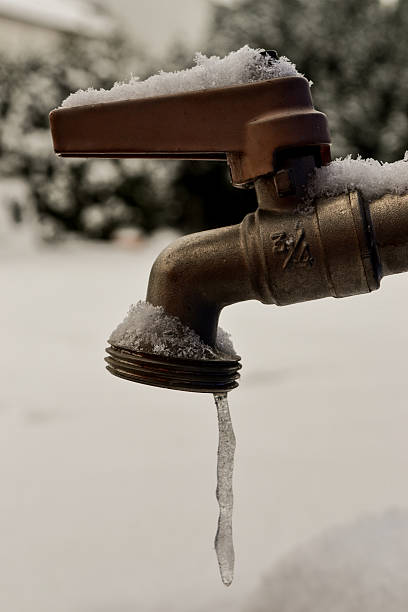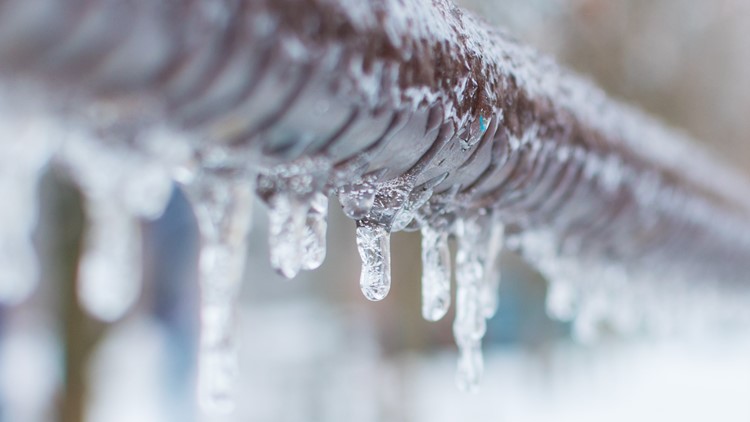Crucial Advice to Avoid Frozen Plumbing in Cold Weather
Crucial Advice to Avoid Frozen Plumbing in Cold Weather
Blog Article
On this page down the page you can locate a bunch of awesome insights concerning Helpful Tips to Prevent Frozen Pipes this Winter.

Winter can damage your pipes, especially by freezing pipes. Here's how to stop it from taking place and what to do if it does.
Introduction
As temperatures decline, the risk of frozen pipes boosts, potentially leading to costly repair work and water damages. Comprehending how to stop icy pipes is vital for home owners in cold environments.
Recognizing Icy Pipes
What causes pipelines to freeze?
Pipelines ice up when subjected to temperatures listed below 32 ° F (0 ° C) for expanded periods. As water inside the pipelines freezes, it broadens, taxing the pipe walls and possibly causing them to rupture.
Dangers and damages
Icy pipelines can cause water system interruptions, residential property damage, and pricey fixings. Burst pipelines can flood homes and create substantial structural damages.
Signs of Frozen Piping
Determining icy pipes early can stop them from bursting.
Exactly how to identify frozen pipes
Search for reduced water flow from taps, uncommon smells or sounds from pipes, and visible frost on exposed pipes.
Avoidance Tips
Shielding at risk pipelines
Cover pipelines in insulation sleeves or utilize heat tape to protect them from freezing temperatures. Focus on pipelines in unheated or exterior areas of the home.
Home heating strategies
Keep interior rooms effectively heated, specifically locations with plumbing. Open cabinet doors to enable warm air to circulate around pipelines under sinks.
Securing Outdoor Pipes
Garden tubes and outside taps
Disconnect and drain yard hose pipes before winter season. Mount frost-proof spigots or cover outside taps with protected caps.
What to Do If Your Pipes Freeze
Immediate activities to take
If you believe frozen pipelines, keep faucets open to soothe pressure as the ice melts. Make use of a hairdryer or towels soaked in hot water to thaw pipelines slowly.
Long-Term Solutions
Structural modifications
Take into consideration rerouting pipelines far from outside walls or unheated areas. Include extra insulation to attic rooms, cellars, and crawl spaces.
Updating insulation
Buy top quality insulation for pipes, attics, and walls. Correct insulation aids maintain consistent temperatures and lowers the risk of frozen pipelines.
Verdict
Protecting against icy pipes requires proactive actions and fast reactions. By understanding the reasons, indications, and safety nets, home owners can secure their pipes during winter.
Helpful Tips to Prevent Frozen Pipes this Winter
UNDERSTANDING THE BASICS: WHY PIPES FREEZE AND WHY IT’S A PROBLEM
Water freezing inside pipes is common during the winter months, but understanding why pipes freeze, and the potential problems it can cause is crucial in preventing such incidents. This section will delve into the basics of why pipes freeze and the associated problems that may arise.
THE SCIENCE BEHIND FROZEN PIPES
When water reaches freezing temperatures, it undergoes a physical transformation and solidifies into ice. This expansion of water as it freezes is the primary reason pipes can burst. As the water inside the pipe freezes, it expands, creating immense pressure on the walls. If the pressure becomes too great, the pipe can crack or rupture, leading to leaks and water damage.
FACTORS THAT CONTRIBUTE TO PIPE FREEZING
Low Temperatures: Extremely cold weather, especially below freezing, increases the risk of pipes freezing. Uninsulated or Poorly Insulated Pipes: Pipes located in unheated areas, such as basements, crawl spaces, or attics, are more prone to freezing. Insufficient insulation or lack of insulation altogether exacerbates the problem. Exterior Wall Exposure: Pipes running along exterior walls are susceptible to freezing as they encounter colder temperatures outside. Lack of Heating or Temperature Regulation: Inadequate heating or inconsistent temperature control in your home can contribute to frozen pipes. PROBLEMS CAUSED BY FROZEN PIPES
- Pipe Bursting: As mentioned earlier, the expansion of water as it freezes can cause pipes to burst, resulting in significant water damage.
- Water Damage: When pipes burst, it can lead to flooding and water damage to your property, including walls, ceilings, flooring, and personal belongings.
- Structural Damage: Prolonged exposure to water from burst pipes can compromise the structural integrity of your home, leading to costly repairs.
- Mold and Mildew Growth: Excess moisture from water damage can create a favorable environment for mold and mildew growth, posing health risks to occupants.
- Disrupted Water Supply: Frozen pipes can also result in a complete or partial loss of water supply until the issue is resolved.
WHY CERTAIN PIPES ARE MORE PRONE TO FREEZING
- Location: Pipes located in unheated or poorly insulated areas, such as basements, crawl spaces, attics, or exterior walls, are at higher risk of freezing.
- Exterior Pipes: Outdoor pipes, such as those used for irrigation or exposed plumbing, are particularly vulnerable to freezing as they are directly exposed to the elements.
- Supply Lines: Pipes that carry water from the main water supply into your home, including the main water line, are critical to protect as freezing in these lines can affect your entire plumbing system.
- Underground Pipes: Pipes buried underground, such as those connected to sprinkler systems or outdoor faucets, can be susceptible to freezing if not properly insulated.
https://busybusy.com/blog/helpful-tips-to-prevent-frozen-pipes-this-winter/

I ran across that blog post on How To Avoid Freezing Pipes while doing a search on the internet. Are you aware of someone else who is interested by the subject? Take a moment to share it. Thank you so much for going through it.
Or Book Technician Here Report this page